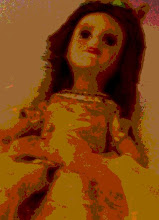On my other blog and on the science fiction and fantasy group on facebook, I and others have occasionally discussed changes in science fiction over the last generation; changes in definition, changes is audience and what's being published and how they impact each other. But as I think about the fantasy story I've been posting on this blog, I realize the same is happening with fantasy, to a degree. Fantasy enjoys far better success (and much of the more successful so-called science fiction is really fantasy in many respects, too) as exemplified by what makes it into tv and movies (and that's what most publishers are hoping for in the novels they choose, because that's where the big money comes in besides the stuff that makes it into the classroom as required reading). In some respects, old classic fantasy (including fair tales) are even staging something of a comeback. But like science fiction, it's all got a new, modern twist, being set in near-contemporary worlds and mixed up with contemporary fiction genre's (Grimm being a cop show, for example). Even Harry Potter is set in modern England, though some who aren't fans see the victorian-era garb and assume it has a historical setting).
I've seen and heard discussions of high fantasy as if it were still popular. It at least doesn't seem to have lost its definition as much science fiction has, but I'm not seeing any make it big. Am I missing something? For awhile, I saw quite a few books that might almost fit into it: pseudo medieval settings of elf-like beings or beings calling themselves elves (though they don't fit either the fairy tale or Tolkein definition that I can tell), but none recently. The closest that I saw get good billing was Dwarf or Dwarves. (The really cool helm on the cover is what sticks in my mind more than the name.
It would be sad if high fantasy slid into the obscure past, another lost genre, just when we have writers that let the women play cool roles in them. Women having cool roles was notably lacking in most of what I had been finding when it was more popular and it remains rare in the newer sorts of fantasy I've been seeing. I hope it's not a trend that every time a sub genre gets cool women characters, it fades out. I was encouraged to believe that women in lead roles was the in thing (since the guys don't seem to mind at all and the women certainly enjoy it). McCaffrey was billed as a trend setter in that regard, and a few other SF writers have had varying degrees of success with female or mixed leads (though none of them stick in my mind the way Menolly, Lessa, and Helva do) but it's not a trend that has made it to media and will only stay a trend if publishers accept it as such.
Friday, November 25, 2011
Subscribe to:
Post Comments (Atom)

No comments:
Post a Comment